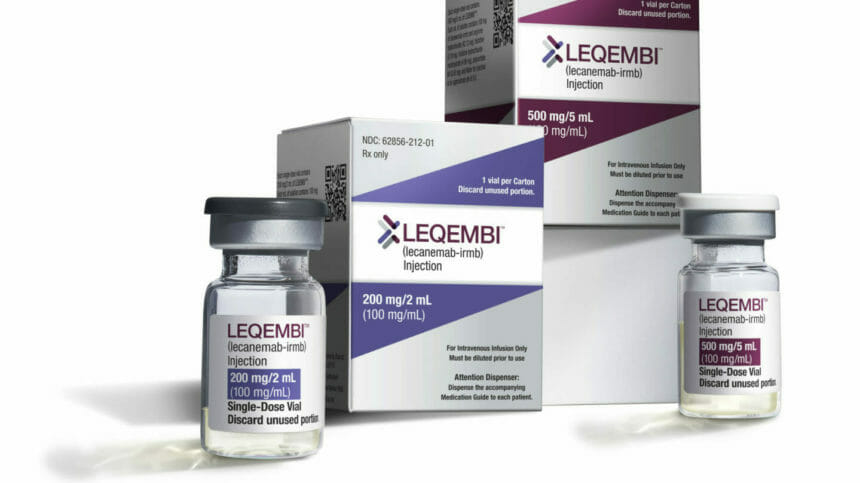Researchers at Cambridge Public Health aren’t sure if Alzheimer’s disease drugs targeting amyloid protein will have a large-scale effect on reducing the disease. They say that challenges including the risk-benefit ratio, limited eligibility and high costs may limit the treatments from making an overall impact.
Their report was published Tuesday in Alzheimer’s & Dementia.
Two completed phase 3 randomized controlled trials of amyloid therapies found significant reductions in the rate of cognitive and functional decline compared with people receiving a placebo. But the effect sizes in terms of overall dementia reduction were so small. That is, it would be difficult for doctors to see the difference between the decline of a patient on the drug and one on placebo after 18 months, the authors said.
Brain swelling and bleeding, adverse effects that happened during the trials, were another issue.
Not much is known about the long-term effects of the drugs beyond the18-month mark, because that’s how long most trials lasted. Long-term placebo-controlled trials would be necessary to see if decline was slowing, the authors wrote.
Media coverage has implied the drugs are suitable for anyone with a diagnosis of Alzheimer’s, but clinical trials have only included those with early symptomatic Alzheimer’s disease, and not those with other conditions that could have contributed to symptoms. Trial participants represent less than 8% of people with early Alzheimer’s disease. Those in the trials were up to 10 to 15 years younger than those typically presenting with early symptoms, the authors wrote.
“[The] effect sizes seen in the trials are very small and the drugs will need be administered as early in the disease process as possible, when symptoms are mild — and people in these phases of disease can be hard to identify,” Sebastian Walsh, a fellow in public health medicine at Cambridge Public Health, University of Cambridge, said in a statement.
Based on current evidence, it is far from clear whether amyloid immunotherapy can ever significantly reduce the effects of the disease on a population-level scale, the authors wrote.“At a health system level, roll out of treatment even for only narrowly defined patient groups will involve considerable resources including personnel, with profound opportunity costs. This will be extremely challenging for even the best-funded healthcare systems,” they added.




